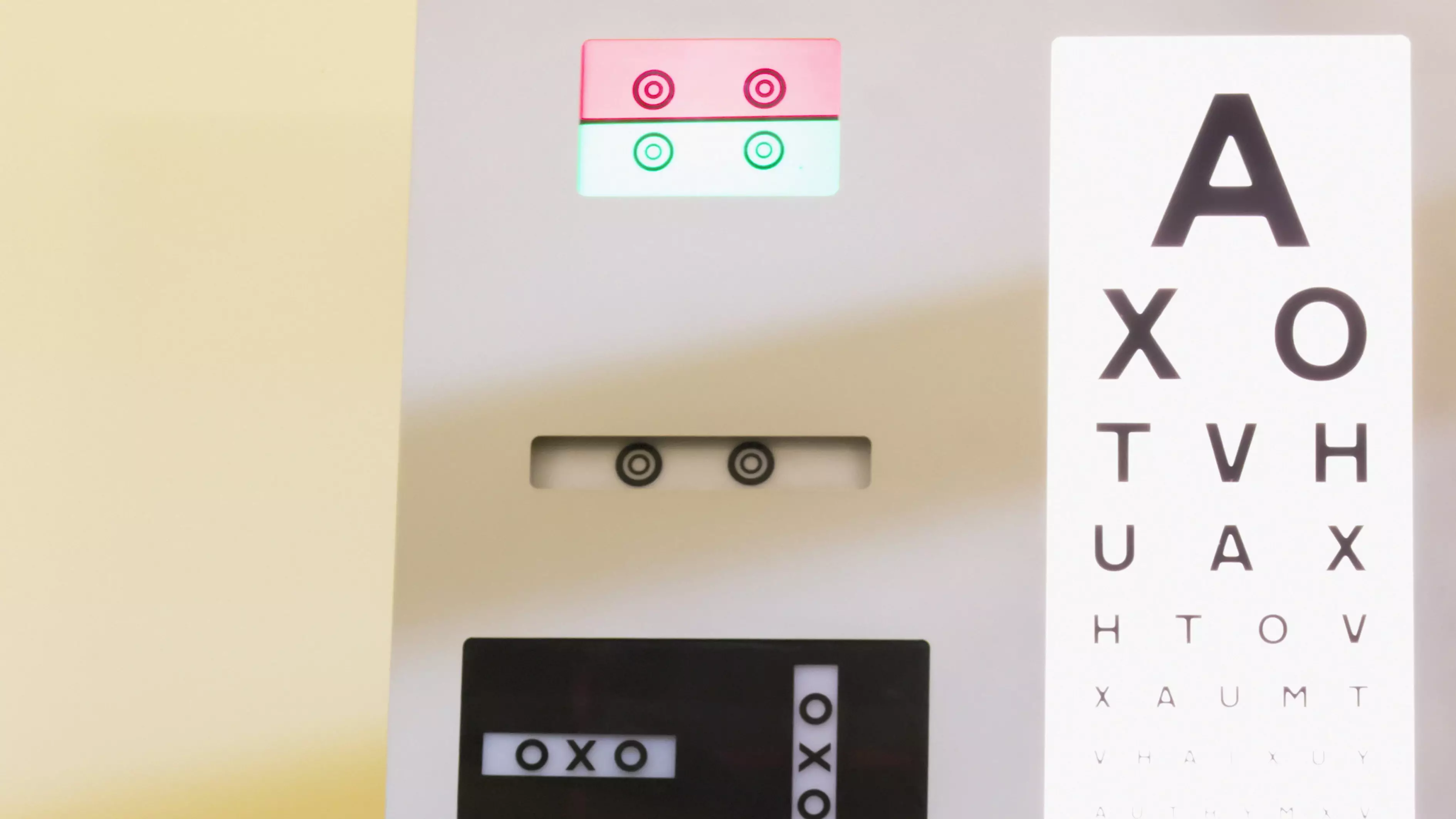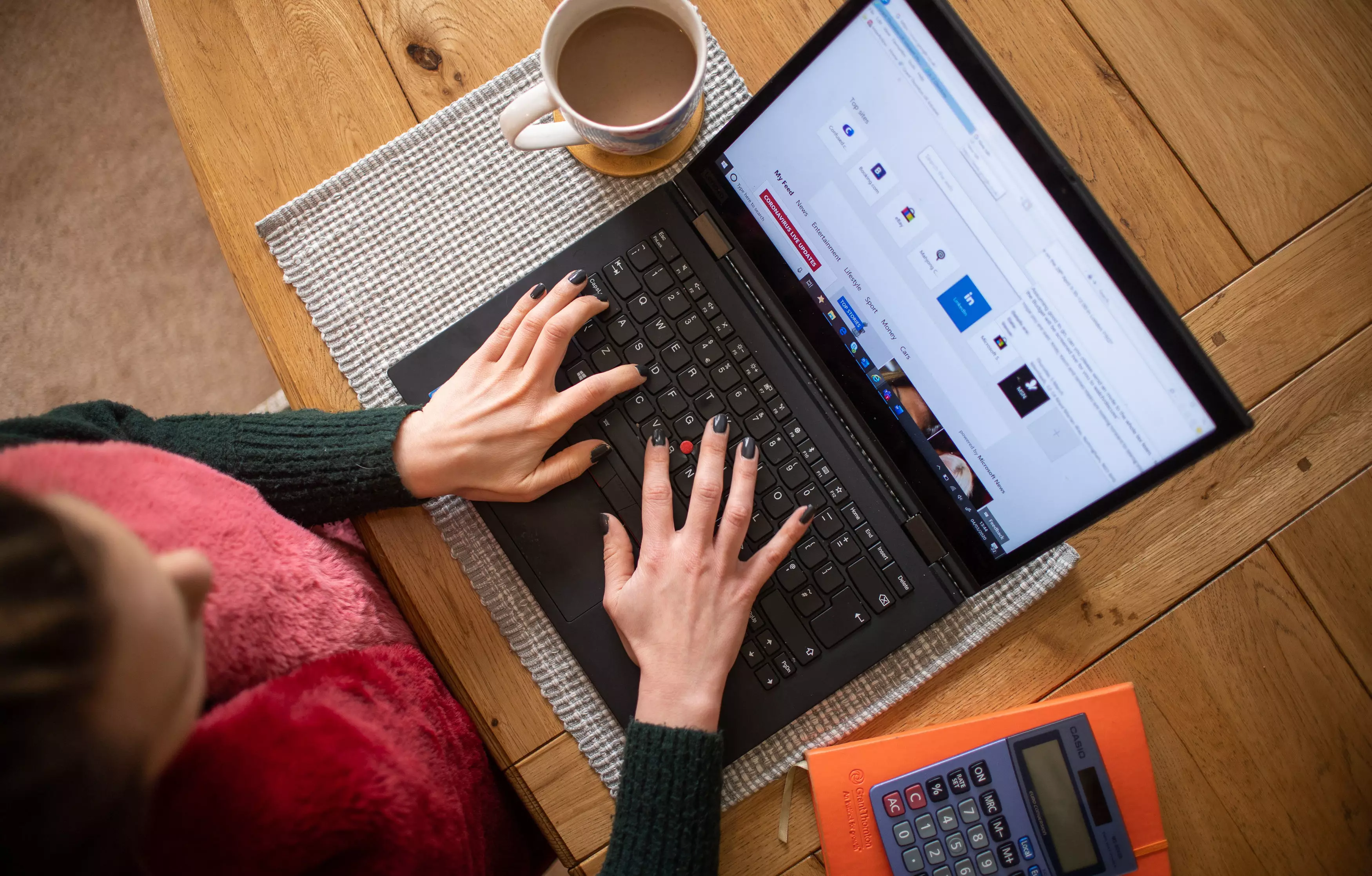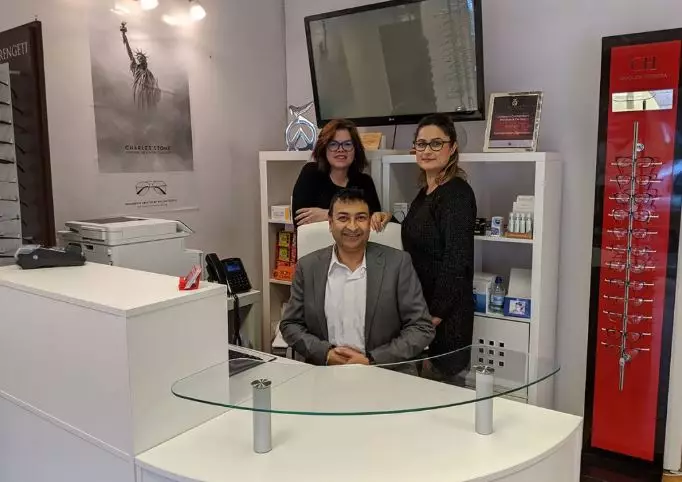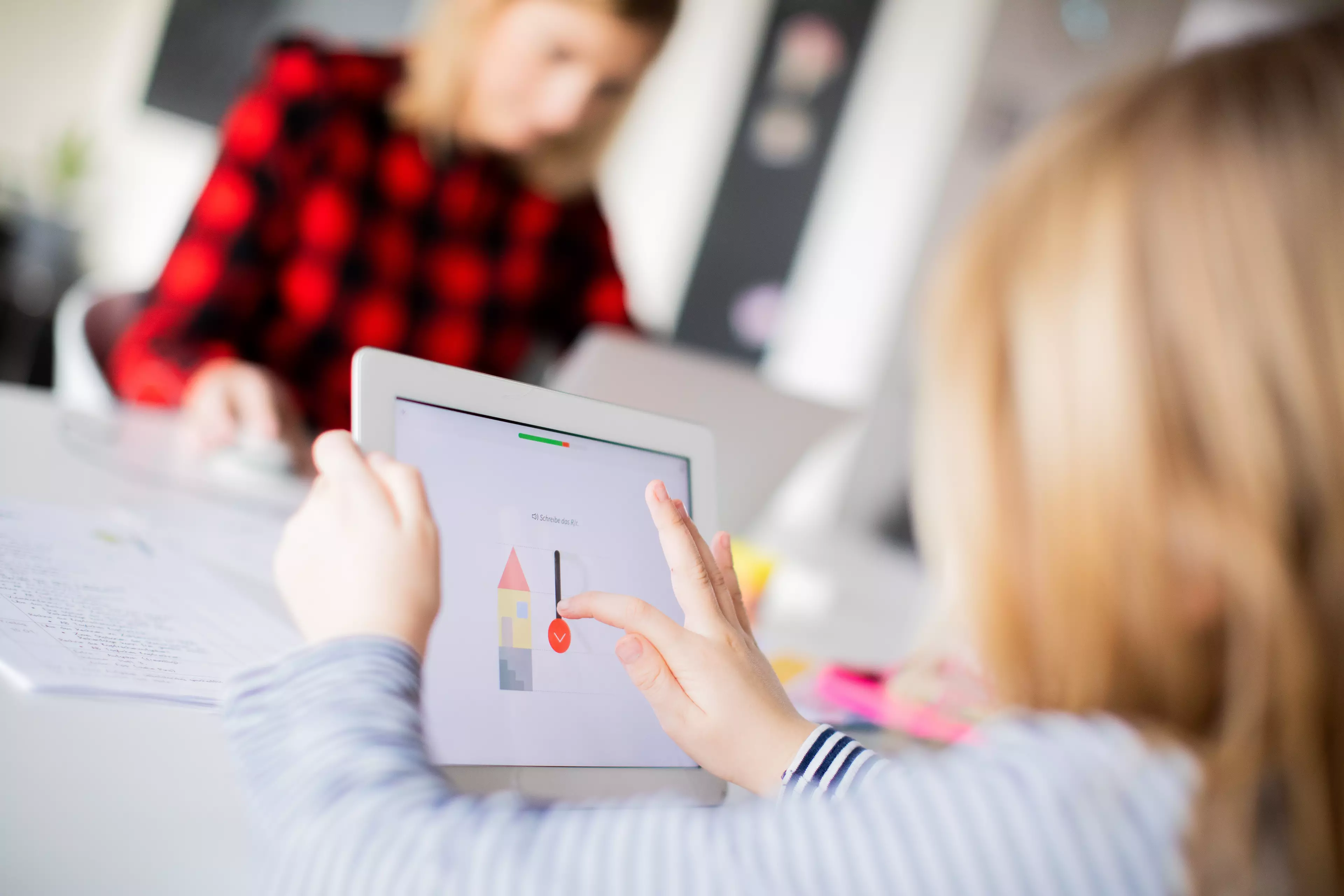
Over the last year, you might have noticed your eyes have taken a bit of a battering - especially if you've been working from home throughout the coronavirus pandemic.
The same might be said for your kids if they've been trying to learn from iPads, computers or laptops.
But, fear not - things might be looking up in the hopefully-near future because a behavioural optometrist has said that our vision should improve as our lives get back to 'normal'.

Bhavin Shah, who also works as a myopia (short-sightedness) management consultant at Central Vision Opticians in Finchley, London, thinks that when we're able to travel to and from work, our eyes will be given their necessary breaks.
Advert
Essentially, we've all just got overworked eyes that need a little recovery time.
Speaking to LADbible, Bhavin says: "Adults have been having a significant increase in symptoms whilst working from home. There have been several studies, somewhere between 22 percent and 38 percent report that their eyes have deteriorated.
"I've seen an increase in patients with these symptoms - eyestrain, fatigue, tired and blurry eyes.
"The journey to work and working in an office environment can allow more breaks and natural eye movements and focusing."

Bhavin says there has also been an increase in people complaining about dry eyes, which can occur as the result of staring at a screen - such as a laptop or computer.
Advert
He continues: "I expect the incidence of these symptoms to decrease once people start to go back to school/work.
"Once workers have returned to the process of work including the journey to work and safety in the office, their wellbeing, including visual comfort, performance will improve. and to an extent, their vision should feel better."

Children may also find their vision suffering at present, without travelling to and from school. On top of that, they might not be having as much time playing outside - like they usually would on lunchtimes or breaks - meaning their eyes are often fixed on TV screens or learning devices.
Advert
Bhavin explains: "Increased close work, screen time and reduced outdoor time have all played a factor in the increase in short sightedness.
"I've seen significantly higher levels of change in children's vision. Many children have had twice the normal level of change.
"A lack of physical movement and activities that need real world interaction could be hindering the natural development of skills such as hand eye coordination and visual spatial awareness.
"In the classroom or school, kids will have lots of movement. Also their eyes will be focusing between their deskwork and the board or teacher which helps to relax the eye muscles rather than focusing close all the time.
Advert
"The kids will also have a lot more outdoor time which is another factor in protecting the eyes and vision."
Featured Image Credit: PATopics: News, Coronavirus, UK